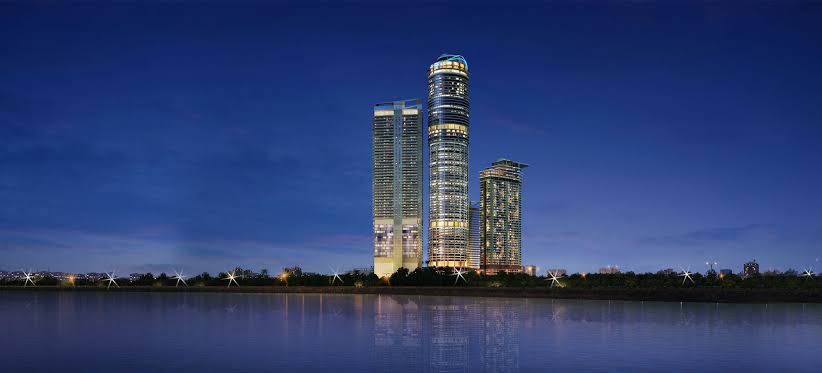The real estate outlook: What to expect in 2024

The desire for homeownership remains undeterred among consumers, as residential sales continue to breach previous highs in Indian Real Estate. In the first nine months of 2023, an estimated 196,227 units were sold across top seven cities—marking a 15-year high.
The Indian real estate (RE) continued its buoyant run in 2023, driven by prevailing optimism among consumers and developers. The market size—currently valued at USD 265.18 billion—is up by about 32 per cent since 2021, showcasing strong growth trends fuelled by economic stability and investor confidence.
The desire for homeownership remains undeterred among consumers, as residential sales continue to breach previous highs. In the first nine months of 2023, an estimated 196,227 units were sold across top seven cities—marking a 15-year high. This market momentum is majorly driven by evolving consumer dynamics and a surge in projects with enhanced built-up experiences. The commercial segment has also grown steadily, fuelled by domestic demand, and increasing investor confidence in the Indian market.
What’s on the horizon?
Infrastructure augmenting growth: There is a synergistic relationship between infrastructure development and the RE sector. For instance, with the Noida International Airport expected to operationalize next year, neighbouring areas, such as Greater Noida and Yamuna Expressway, are witnessing robust RE activity, marked by a surge in new developments in residential, commercial, and retail spaces. Similarly, with upcoming connectivity projects in Navi Mumbai—such as the Navi Mumbai International Airport, the Mumbai Trans Harbour Link, and the Navi Mumbai Metro Line 1—property prices are expected to witness a consistent upswing. Going ahead, with several infrastructure projects in the pipeline advancing seamless connectivity—the Delhi-Mumbai Industrial Corridor, Bharatmala, Delhi-Ghaziabad-Meerut RRTS corridor and the development of 100 airports by 2024—Real Estate markets, especially in tier-2 and tier-3 cities, will witness a demand growth. Prominent national-level developers are expected to tap into these newer markets to cater to the demand.
Changing consumer profile: Changing consumer profile and preferences are shaping emerging trends in RE. Favourable economic factors, such as a rising per capita income, stability in interest rates and strengthening regulations, are driving consumers today into the sector, particularly millennials who are opting for property ownership over renting. The largest demographic group, they prefer affordable, tech-savvy and socially conscious living spaces. Further, technological advancements are reshaping investment dynamics, opening doors for new investors, who are attracted by the ease in investing, creativity in portfolio management and enhanced information accessibility. The concept of fractional ownership is also rapidly gaining traction, offering several advantages, such as reduced financial burden and investment diversification. With SEBI’s recent amendments to create a regulatory framework for Small and Medium REITS (SM REITS), the sector is expected to attract more investors. Asset tokenisation too is gaining traction, making fractional ownership easier. With first-time investors now starting at 25 years of age, the next generation is expected to shape Real Estate products.
Also Read: Gurgaon portion of Dwarka Expressway to open in February
Strong global standing favouring commercial growth: The commercial segment is expected to continue growing as India remains a favourable investment option amidst rising geopolitical tensions. The demand growth will be mainly driven by tech-enabled sectors expanding their operations in the country. Today, India is the most preferred destination for global shared services, with about 1,580 GCCs as of FY23. This number is estimated to reach 1,900 by 2025. The data centre stock is also likely to double to 23 million square feet in the next three years. Other trends, such as enhanced consumer spending, increasing manufacturing output and supply chain diversification, are further expected to boost commercial RE in the coming year. Following a significant year of institutional investments—which grew by 27 per cent to USD4.6 billion—2024 is likely to see another spike, with investors preferring commercial asset classes such as logistics, warehouses, and data centres.
Expanding technology adoption: Surging digitisation is constantly disrupting the Real Estate sector. PropTech is making processes, such as buying, selling, managing, and building, more efficient and transparent. Today, occupiers are preferring properties equipped with cutting-edge technologies, which enhance their living experience. As technology keeps expanding, use cases of emerging trends—such as AI, IoT and machine learning—are expected to increase. Estimates suggest that the global market size of generative AI in RE is expected to grow at a CAGR of 11.2 per cent in the coming years. Emerging tech is also elevating customer experiences. By analysing complex metrics, consumers today can make informed and data-driven market decisions. Similarly, these advancements are also optimising property management from a developer’s perspective by reducing overall operational costs. Predictive tasks, such as managing finances, marketing, and maintenance, are now being automated. Going ahead, further advancements in VR, AR and generative AI can create much more immersive and interactive experiences. Besides this, tech has also evolved as an integral component of managing a largely fragmented construction cycle. Advanced digital tools—such as Building Information Modelling (BIM), 3D printing, drones and real-time tracking instruments—are ensuring cost-efficiency, quality, and timely delivery of construction projects.
Sustainability remains a key priority: ESG practices are seeing increased adoption. For instance, according to a recent KPMG-Colliers report, about 56 per cent of Real Estate stakeholders have assigned high consideration to sustainability in projects. This growing consciousness is promoting sustainable buildings, which offer multiple benefits such as enhanced well-being, resource efficiency and reduced emissions. Although most green buildings have an added cost of 5 to 15 per cent, occupiers are opting for sustainability to meet their emission targets. Going ahead, driven by enhanced demand, government reforms and improvements in green financing, sustainability is expected to emerge as a key trend.
While the sector remains buoyant, further geopolitical escalations might cause an increase in commodity prices and cause a temporary slowdown. However, with interest rates expected to remain steady, the sector is anticipated to navigate any short-term headwinds successfully and head another year of growth.

Read By: 317 Vatika Limited had applied for the RERA registration five years after the Haryana notification in 2022 and…

Read By: 247 नोएडा (Noida) में सुपरटेक कंपनी की ओर से तैयार की जाने वाली 80 मंजिला इमारत दिवालिया घोषित…


[…] The real estate outlook: What to expect in 2024 […]